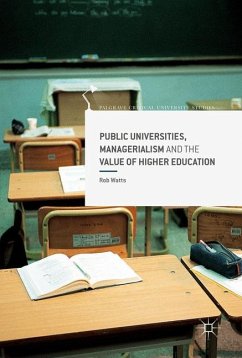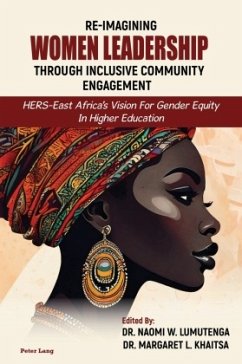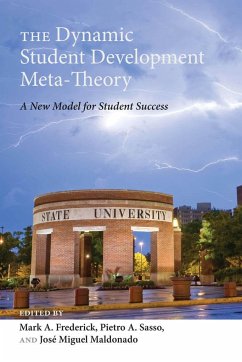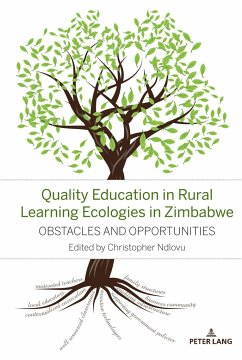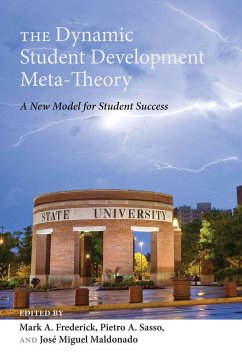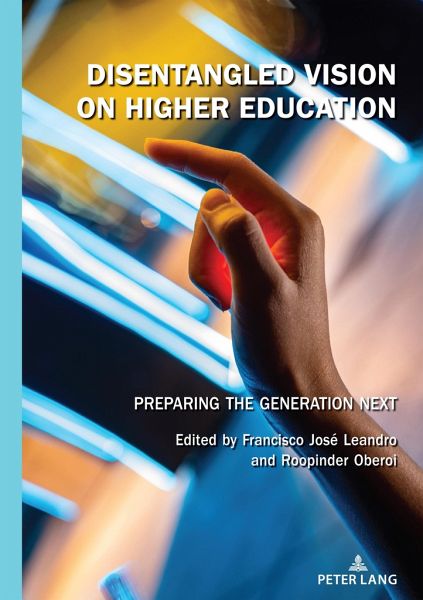
Disentangled Vision on Higher Education
Preparing the Generation Next
Herausgegeben: Leandro, Francisco José; Oberoi, Roopinder
Versandkostenfrei!
Versandfertig in 6-10 Tagen
98,95 €
inkl. MwSt.
Weitere Ausgaben:

PAYBACK Punkte
0 °P sammeln!
This book offers an objective and dispassionate analysis of modern educational architecture allowing us to notice gaps. The fundamental question addressed is whether our education system will embrace knowledge-based society and have the foresight to better prepare future generations. If educators around the world step back for a moment, it is not difficult to notice that unanswered questions about education are looming everywhere. The existent academic literature on education is abundant and embracing. In consequence, one can ask why is this book necessary? Indeed, this book is the result of s...
This book offers an objective and dispassionate analysis of modern educational architecture allowing us to notice gaps. The fundamental question addressed is whether our education system will embrace knowledge-based society and have the foresight to better prepare future generations. If educators around the world step back for a moment, it is not difficult to notice that unanswered questions about education are looming everywhere. The existent academic literature on education is abundant and embracing. In consequence, one can ask why is this book necessary? Indeed, this book is the result of senior university professors sharing their learnings and anticipating the pivotal issues facing all education professionals. According to the United Nations, by 2050, 68% of the world's population will be living in urban areas. This fact cannot be ignored as it is one of the drivers of the profile of the future students. The reasons to organize this publication are many, but among them three stand out which also function as the driving forces behind this project: (1) University professors teach future generations based on models grounded on knowledge advanced by past experiences; (2) The decisive requirement to understand the needs of the new generations of university millennial students; and (3) What are the critical challenges of global societies?
"This book problematizes the issues concerning education, and its main contribution is to answer the need to rethink education, face contemporary challenges, and reorganize the way public policies address education. It critically analyses the challenges of global societies in a decentralized perspective, not only reflecting a western perspective of education and knowledge production. The project's originality comes from the contemporaneity of the topics covered, from the interdisciplinary perspective, and from the specific attention given to trends around education."
-Cátia Miriam Costa, Researcher and Invited Assistant Professor, Centre for International Studies, Perfil Ciência
"This book problematizes the issues concerning education, and its main contribution is to answer the need to rethink education, face contemporary challenges, and reorganize the way public policies address education. It critically analyses the challenges of global societies in a decentralized perspective, not only reflecting a western perspective of education and knowledge production. The project's originality comes from the contemporaneity of the topics covered, from the interdisciplinary perspective, and from the specific attention given to trends around education."
-Cátia Miriam Costa, Researcher and Invited Assistant Professor, Centre for International Studies, Perfil Ciência







